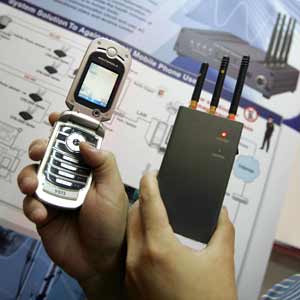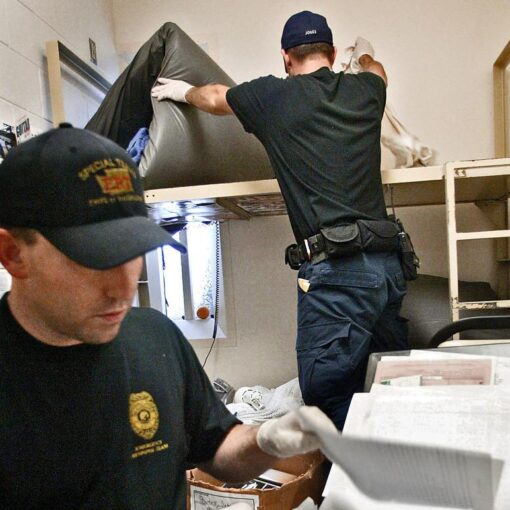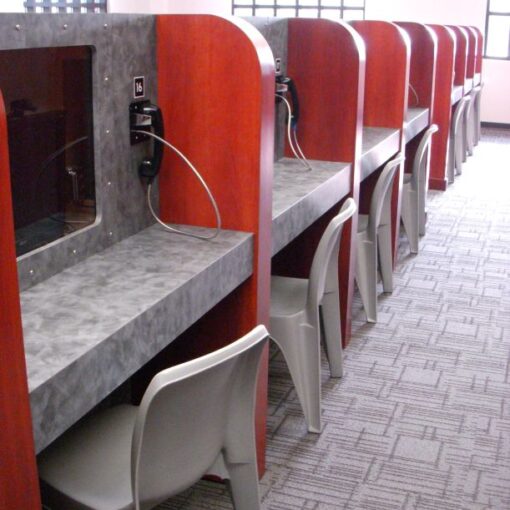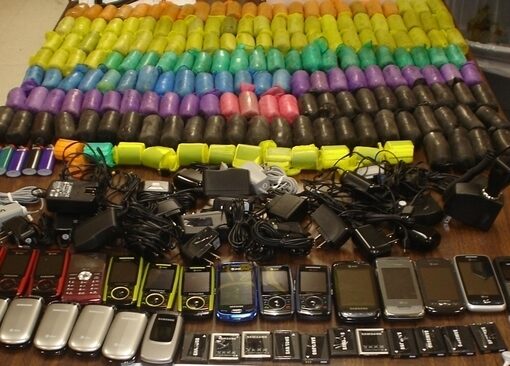 A new prison in Australia is proposing the installation of advanced technology in each of the cells. This will include in-cell telephones. The private prison company Serco states, “The introduction of in-cell telephones in its overseas prisons had resulted in significant improvements in prison security, including a drop in the number of prisoners trying to smuggle cellphones.”
A new prison in Australia is proposing the installation of advanced technology in each of the cells. This will include in-cell telephones. The private prison company Serco states, “The introduction of in-cell telephones in its overseas prisons had resulted in significant improvements in prison security, including a drop in the number of prisoners trying to smuggle cellphones.”
The meshDETECT secure prison cell phone solution allows existing prisons and jails to realize the same reduction in contraband cell phones without the expense of installing hard-wired phones in each cell.
Prisoners would get telephones, televisions and “electronic menu” systems in the cells of a private prison in south Auckland under plans being considered by the Department of Corrections.
British-based company Serco, which will manage the new 960-bed prison at Wiri, has introduced the technology in its prisons overseas and wants to do the same here.
The proposal includes introducing “custodial management system” screens to prison units – and in some cases to individual cells – so inmates could order meals, write shopping lists, add credit to phone accounts and see weekly timetables.
Serco said the introduction of in-cell telephones in its overseas prisons had resulted in significant improvements in prison security, including a drop in the number of prisoners trying to smuggle cellphones.
TV sets were allowed in cells, depending on prisoners’ behaviour.
Serco would not say whether it planned to use the new technology in the Wiri prison, but a Department of Corrections spokesman confirmed it was in the company’s proposal.
The SecureFuture consortium, comprised of Macquarie (financial arranger), Fletcher Construction (design and construction), Spotless (facility management provider), and Serco (operator and custodial services provider) is the preferred bidder for the $300 million 25-year contract to build and run the facility.
Canterbury University Professor of Sociology and former Paremoremo Prison inmate Greg Newbold said introducing the technology was clearly a cost-cutting exercise.
“Those private prisons have to run at a profit and 80 per cent of the cost of running prisons is in manpower.
“If you can do the administrative things electronically, you reduce the need for staff on the floor and you can run a prison more efficiently and more cheaply.
Corrections Association president Beven Hanlon said the in-cell technology could save prison officers hours of mundane paperwork.
“At the moment if the prisoner wants something they have to come up to an officer and request it, so introducing these screens would mean if they’re short on toilet paper or they need a new toothbrush etc they can just enter it in.”
“But they should use it in the right way – let’s not get crazy on it and turn these places into the Hilton.”
Sensible Sentencing Trust spokesman Garth McVicar said he was “dumbfounded” by the proposal.
” I’ve seen no evidence that making prison a more comfortable place to be is any more likely to reduce offending than making prison a place that is unpleasant and where offenders should not want to go back to,” he said.
- Multi-Blockchain System for Inmate Forensics - April 2, 2024
- Blockchain to Secure Attorney-Inmate Privacy for Prison Calls - June 28, 2023
- meshDETECT® Announces Grant of Ninth Patent For Blockchain Wireless Services - August 26, 2022




